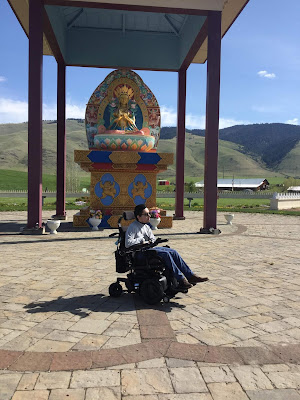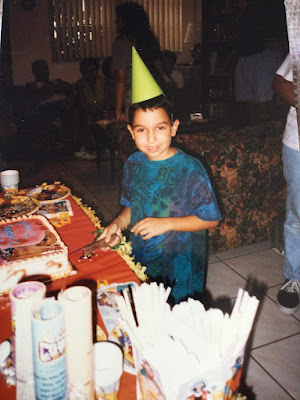FROM THE EARTHBOUND TOMBOY FILES OF HEIDI-JOHNSON-WRIGHT
by Heidi Johnson-Wright
Being cared for by others over your
life should be a reverse bell curve. You start out requiring a lot of help, gradually
need less and less, live decades independently, then your needs return toward
life’s end.
Once upon a time, I was in lock
step with this blueprint of how we insist normal life should be. I was an
eight-year old who rode a bike and climbed trees, a healthy third-grader who
had mastered most personal care chores. Then rheumatoid arthritis fell from the
sky like a white-hot shower of napalm. In a matter of months, dressing and
grooming and cutting up food became monumental tasks. From then on, I have had
to depend on caregivers for many simple and highly personal tasks.
I have had many caregivers thus far
in life: a few dedicated family members who have done it for free and the vast
majority who have been paid for their services. Sometimes family helps out of
love and other times – let’s be honest – out of moral obligation. We then assume
that the ones who get paid see dollars as their goal when sometimes they also stick
around for the personal connection. They develop something of an emotional investment
in the client.
Much has been studied and written about
the burdens of caregiving for disabled offspring or how the sandwich generation
are ground down to a nub by their obligations towards both kids and elders. All
of it is valid and worthy of discussion. But what about the recipients of care,
especially us adults who are supposed to be able to wash our own hair and pare
our own nails?
When I was a teenager, I felt
especially self-conscious. I was less concerned about needing help than I was sensitive
to my personal appearance. I passively accepted my gimpdom but felt embarrassed
to get naked in front of strangers.
When I started college at 17, I
hired my first personal care attendant. I was anxious about the arrangement.
Could I depend on her to get me up and ready so I wouldn’t miss my van ride to
class? We quickly built a relationship of trust. I soon felt a bond with Lexie,
the punk poetess who would be my caregiver and roll model throughout my four
years of undergrad.
One time, Lexie was stricken with a
devastating flu and bout of laryngitis. She was much too sick to work, so I
temporarily hired an attendant already employed by another girl in my dorm. The
sub was pleasant and punctual and resembled Dick Butkus in bibbed overalls.
She’d never heard of Captain Sensible nor seen I Am Curious (Yellow.) I soon developed an irrational dislike for
the poor woman though I tried not to show it. I deeply missed Lexie and fretted
about her health.
Finally, after two weeks, my door
swung open one morning.
I thanked God Lexie – Sally Bowles
to my Heidi of the Swiss Alps -- had been returned to me in fine fettle.
Lexie was always dependable, but
other paid caregivers were not. As I got older, I realized I would much rather
have an inexperienced attendant who is reliable, personable and shows initiative
than an experienced one who is always late or I can’t bond with.
Family caregivers can be wonderful
because of the memories and private jokes you share. If they love and accept
you, all the better. But I have always felt a greater indebtedness to family
members than those I pay. That indebtedness can eat at your heart.
A loved one can hug me and tell me
I’m not a burden, but the truth is, I sometimes feel like one. I love the concept
of respite care but I also feel a sense of shame that it’s needed in the first
place. Truth is, the simple tasks of my daily existence can weigh down those
dear to me, can pull them down into depression and exhaustion. That can be very
tough to live with.
Perhaps we could take a page from
the book of countries who are – gasp! – a tad more democratic socialist. Places
where tax dollars fund basic attendant care for folks with disabilities so the
need for respite care never arises.
Once we accept disability is often
a natural and expected part of the human condition, then maybe we can forge a
society that cares for all.










